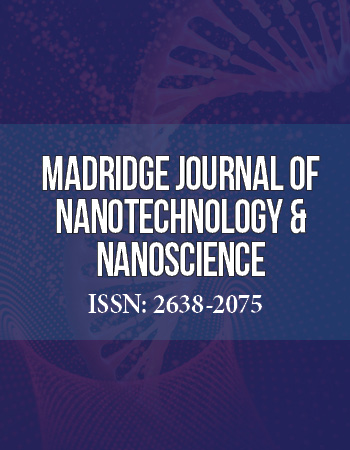3rd International Nanotechnology Conference & Expo
May 7-9, 2018, Rome, Italy
Nanocatalytic Influence on Polymeric Waste Pyrolysis for Energy Recovery and towards Sustainable Environment
Indian Institute of Technology (Banaras Hindu University), India
Nanostructured catalysts and their exploration provide recommended solutions for challenges regarding cost as well as in the factors influencing overall process optimization, due to their characteristic of high surface area to volume ratio which render outstanding properties with respect to the bulk catalyst. At the same time, increasing urbanization, population together with rise in living standards, have caused polymeric waste affecting the environment a chronic issue globally. Hence forth, the technological approach of nanocatalytic pyrolysis for conversion of polymeric waste into energy products is an alternative waste management and progress towards developing sustainable environment. Pyrolysis of waste polymer materials involves thermal decomposition in absence of air/oxygen, cracking their macromolecules into lower molecular weight ones, resulting the formation of a wide range of products from hydrogen, hydrocarbons to coke. It is also one of the tertiary recycling methods for plastics in accordance with ASTM D5033-00 which has divided plastic recycling methods into four types, based on the final result. In general, the variety of products obtained through pyrolysis can be classified into the non-condensable gas fraction, the liquid fraction consisting possible recovery of gasoline range hydrocarbons (C4-C12), kerosene (C10-C18), diesel (C12-C23), motor oil (C23-C40) and the third fraction of solids. While, nanocatalyzed pyrolysis is a promising solution to low thermal conductivity of polymers, therefore, promoting faster reactions in breaking the C-C bonds at lower temperatures, denoting less energy consumption and enabling increase in the process selectivity, generating higher added value products with increased yield.
Biography:
Dr. Poushpi Dwivedi is presently DST-SERB ‘National Post-Doctoral Fellow’ (Project File No. PDF/2017/002264), at Department of Chemistry, Indian Institute of Technology (Banaras Hindu University), Varanasi, India. She obtained her B.Sc. Honours in Chemistry (2001) and M.Sc in Chemistry (2003) from Banaras Hindu University, India; M.Phil. (2009) from Madurai Kamraj University, India; Ph.D. (2015) from Motilal Nehru National Institute of Technology, India. She has worked as ‘Project Fellow’ (2004) and ‘Post-Doctoral Fellow’ (2017) in Department of Chemical Engineering & Technology, I.I.T. (B.H.U.), India; as guest faculty (2016) in Department of Chemistry, University ofAllahabad, India. Research interests include: nanotechnology, nanomedicine, nanobiotechnology, green chemistry, analytical-techniques and energy.


